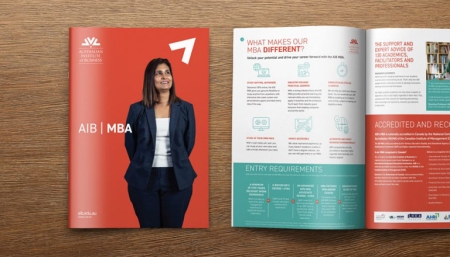4 ways to learn and develop at work

The business world moves so fast now that people who stand still will be left behind. The workplace can be a competitive environment, where employees are constantly being judged on their capabilities and benchmarked against their peers. So if you aspire to grow within your company and develop your professional offering, you can’t be complacent.
Employees and candidates who demonstrate that they’re serious about their professional development are likely to be seen as highly motivated and engaged, giving them a competitive edge. Their openness to learning also suggests they’re flexible, adaptable and can bring a continuous improvement culture to the workplace – all of which is appealing to an employer.
If you want to protect your employability, take charge of your career development and growth in the following ways.
Find out what your company can offer
First things first, does your employer enable and encourage learning opportunities? While some organisations (usually those larger in size) foster these opportunities and prioritise the professional development of their employees, some still don’t. If you’re unsure, speak with a HR professional at work or with your manager. Do they offer leadership development, staff study assistance or access to online education resources? If not, take it upon yourself to research what’s out there in your field or area of professional interest. If you find an online course, event or relevant resource that requires buy in from your work for time and funding, pitch it to them. Even if you get knocked back, it shows you’re keen on learning and growing.
Keep your finger on the pulse
Read and read often. Bookmark 5-10 of the top news sites and blogs relevant to your career and visit them a couple of times a week, or use a news application to build a custom feed to pull from the sites you like. Identify and follow thought leaders in your industry, set up Google Alerts to monitor trends, and pay particular attention to the content your connections are sharing and liking on LinkedIn.
Peer to peer learning
It may seem obvious, but one of the most effective learning strategies is peer-driven learning. If your company doesn’t offer a mentor program, no worries; take the initiative and team up with someone who is in a role or has experience in an area you’d like to learn more about. This is an effective way to not only learn new skills but also understand how the organisation works as a whole. This will also improve your organisation’s knowledge sharing and help break down departmental barriers.
Likewise, offer to mentor others. This is something that will take time out of your schedule, but the long term career development outcomes will be worth it. You will learn about yourself and fine-tune your leadership qualities.
Develop your emotional intelligence
Those with high emotional intelligence work better in teams, adjust to change well and are more agile. They self-aware, motivated and can manage their emotions in a healthy way. Increasingly, recruiters are looking for candidates who demonstrate these traits and have mastered their soft skills. These candidates are leadership material.
So how can you develop your emotional intelligence at work? Start here.
- Take an emotional intelligence online quiz, such as this one to help you identify where to focus your energy.
- Reflect on your own emotions by setting four reminders throughout your day to take note of how you feel. When you notice the presence of a certain emotion, consider how it’s affecting your productivity and communication. If you’re stressed, for example, note how it impacts you physically too.
- Set short-term and long-term professional goals for yourself and determine the actions that will enable you to reach them. Reward yourself for every milestone.
- Observe how you react to people and vice versa. Practice empathy by trying to put yourself in their shoes and being more open to their feelings and needs.
- Make an effort to take responsibility for your actions.
What do you think?
How do you stay at the top of your game? We’re curious to hear how you keep your professional development continuous at work. Comment your views below and join the conversation.
This article was written by Megan Baker and Jelena Milutinovic on behalf of the Australian Institute of Business. All opinions are that of the writer and do not necessarily reflect the opinion of AIB. The following sources were used to compile this article: Entrepreneur; FastCompany; The Guardian; The Huffington Post, Live Bold and Saxons Group




